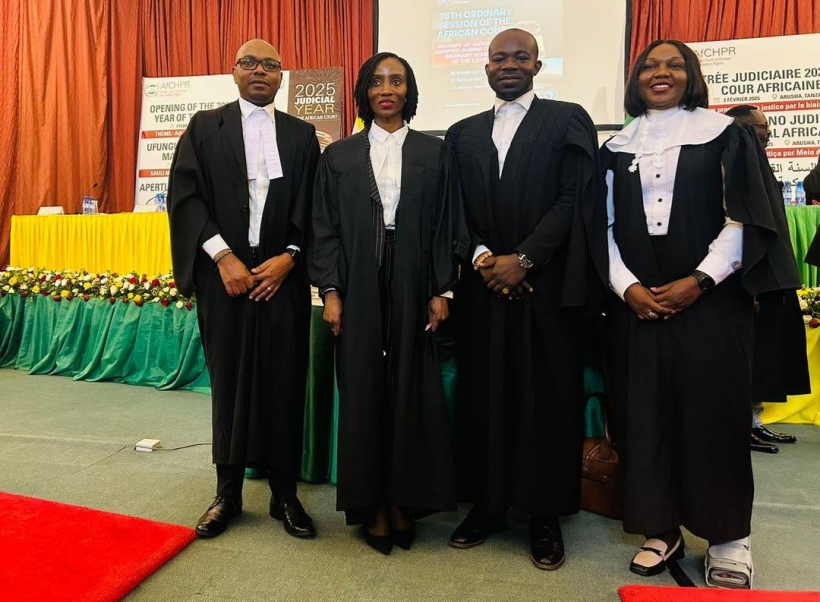
African court delivers landmark judgment on the rights of Persons with Albinism in Tanzania.
In a historic ruling, the African Court on Human and Peoples’ Rights has delivered a significant judgment in the case of Centre for Human Rights, Institute of Human Rights and Development in Africa, and Legal and Human Rights Centre v. United Republic of Tanzania on 5th February, 2025.
The court found Tanzania guilty of human rights violations against persons with albinism (PWA), marking a major step toward justice and protection for this vulnerable community.
Key Findings of the Court
1. Discrimination Against Persons with Albinism
The court recognized that PWAs in Tanzania face systematic discrimination due to deeply rooted superstitions and harmful beliefs that attribute mystical powers to them. While Tanzania has made efforts to combat discrimination, these measures have fallen short of international human rights standards, violating the right to non-discrimination under the African Charter on Human and Peoples’ Rights.
2. Right to Life and State Responsibility
The court ruled that PWAs have been systematically targeted for ritual killings, with the Tanzanian government failing to prevent these crimes or to effectively investigate and prosecute those responsible. As a result, Tanzania was found to have violated the right to life under Article 4 of the African Charter.
3. Failure to Prevent Torture and Ill-Treatment
The judgment highlighted that PWAs have suffered from cruel, inhuman, and degrading treatment, including abductions and trafficking. The government’s failure to take decisive action to prevent these abuses was deemed an act of complicity in torture, violating Article 5 of the African Charter.
4. Rights of Children with Albinism
The court expressed concern over the practice of forcibly placing children with albinism in overcrowded shelters instead of ensuring their protection within their communities. Poor conditions in these shelters—such as inadequate education and healthcare—were found to violate the best interests of the child, as protected under the African Charter on the Rights and Welfare of the Child.
5. Failures in Healthcare and Education
The ruling also addressed the lack of adequate medical care, including access to assistive devices like protective eyewear, and discrimination in healthcare facilities. These failings were deemed violations of the right to health. Similarly, the government’s failure to provide inclusive education for PWA, particularly in shelters, constituted a violation of their right to education.
Court Orders and Reparations
The court has mandated the Tanzanian government to take immediate and concrete steps to remedy these violations:
• Establish a compensation fund with an initial contribution of TZS 10 million.
• Implement legal reforms, including amending the Witchcraft Act of 1928 to address harmful traditional practices.
• Enforce the African Union’s Plan of Action to End Attacks on Persons with Albinism (2021-2031) and sustain public awareness campaigns for at least two years.
• Improve shelter conditions, reunite children with their families where possible, and ensure access to adequate healthcare and education for PWA.
• Submit a progress report on compliance within two years, with a review hearing to be held if full implementation is not achieved within three years.
